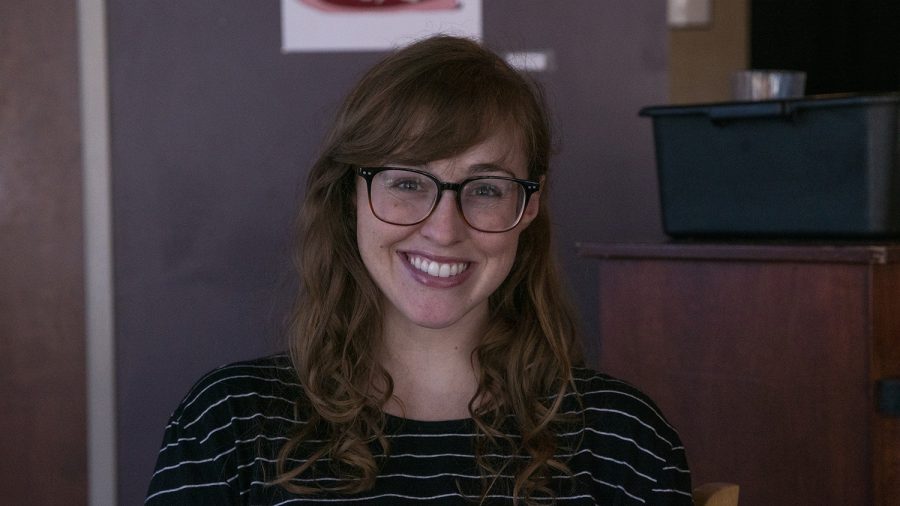Webinar series helps UI grad students apply for research awards, fellowships
The UI graduate school is hosting a series of webinars for graduate students applying for national awards and fellowships. The webinars were made available to students this summer to encourage students to begin the application process earlier in order to improve their chances of winning.
University of Iowa graduate Student Torie Burns is seen on Monday, August 26, 2019. The Graduate College has developed a new webinar series to support University of Iowa Graduate students apply for competitive national awards.
August 29, 2019
A new webinar series for graduate students applying for national awards and fellowships is now being offered through the University of Iowa Graduate College.
The series is made up of 10 webinars and brings together past winners, faculty, staff, and administrators, offering convenient and accessible advising.
Jen Teitle, assistant dean in the UI Graduate College, is one of the advisers serving graduate students. Alongside her colleagues, she supports student fellowships in-person and through workshops. Teitle said that the webinar, hosted through Zoom, not only works better with graduate students’ schedules, but also leads to more success among early applicants.
“There’s very little professional development that you can do as a graduate student that is as important for your career as being able to write grants and fellowships,” Teitle said.
Data collected by the UI Graduate College indicates that offering this webinar series in the summer and encouraging students to think about applying for grants earlier leads to greater success and more winners at the UI, Teitle added.
“If we can get them to understand the award in the summer before they ever get to the University of Iowa, we know that they’ll have a much better chance to apply that year when they’re most likely to win,” she said.
The 10 webinars focus on opportunities offered through the National Science Foundation, the American Association of University Women, the Ford Foundation, and the Mellon Foundation. Students are also offered a $500 incentive for applying for a nationally competitive award.
The goal of the series is to create a “culture of application” across campus, Teitle said. She emphasized that even though writing grants is a critical part of professional development for graduate students, a lot of students go through graduate school without writing for any big national awards.
RELATED: Rhetoric embedded tutors aim to be improved resource for students
“If you start two weeks before the award, even if your ideas are wonderful, you can’t make your draft look the way that it should, because you can’t get enough people to read it,” she said.
UI graduate student Torie Burns is working towards a Ph.D. in English and studies embodiment, gender, and life writing. This area of study focuses on how women talk about their bodies or don’t talk about their bodies in autobiographical text, she said.
Earlier this month, Burns was a part of the American Association of University Women question-and-answer webinar. Burns will not apply for the organization’s awards until next year, but she said that having the ability to start early was helpful.
Burns said that hearing directly from the organization’s faculty on what they looked for in an application was the most beneficial.
“Now that I understand that the people who are evaluating these applications are the ones giving the advice and feedback, from my standpoint, is just incredible,” she said.
Brady Krien started as a Careers and Fellowships advisor in the Graduate College this July and is also a doctoral student in the English department himself. He said that the application process is very involved, and the webinar series offers students more flexible advising.
“Because the webinar itself is recorded and preserved, we ensure that students who weren’t able to make it are able to access that later,” he said.
Krien said that the ideation of the webinar series has been a very collaborative effort across campus, and faculty members are eager to help graduate students during the application process.
“One of the big goals was helping more students access the information and to provide them with help earlier in the process,” he added.
These webinars offer a unique opportunity for students to have the advising they need in a more convenient way, Teitle said, and it has proven successful for many graduate students.
“I think it’s wonderful and that it helps move conversations that happened in just one workshop or class, or with an individual, and tries to make those very broadly accessible,” Teitle said.



